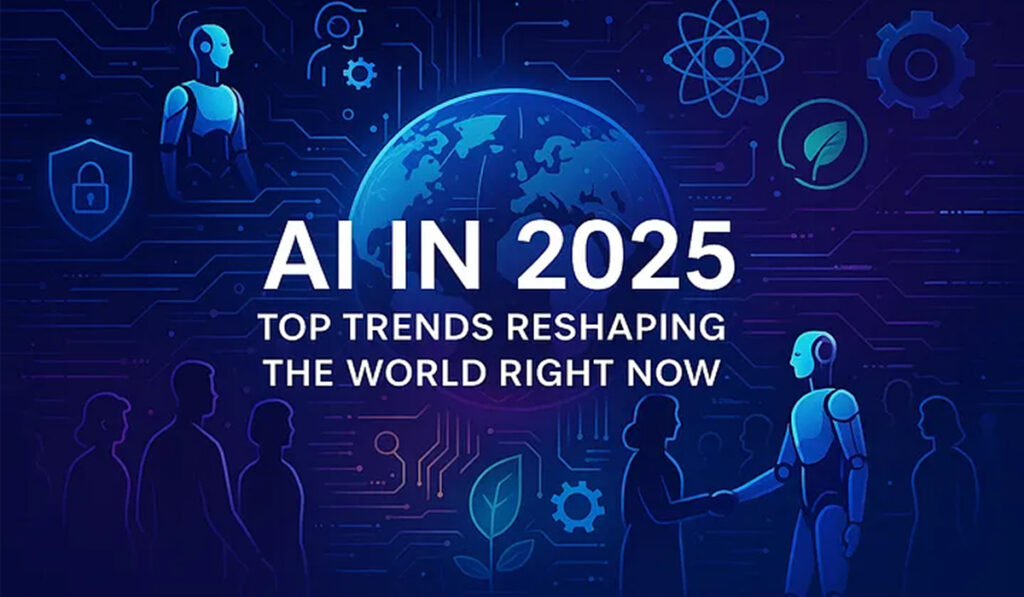
In a historic move that’s already influencing global tech governance, the European Union has launched the world’s first comprehensive legal framework for artificial intelligence: the EU AI Act. This sweeping regulation, which officially entered into force in August 2024, is now being rolled out in stages, with key compliance requirements for businesses and developers beginning in 2025 and full implementation scheduled for 2026 and beyond.
The legislation is designed to classify AI technologies by the level of risk they pose and impose strict obligations on developers, deployers, and users of AI, particularly those that affect public welfare, safety, and human rights. Its goal is clear: to ensure that AI in Europe is human-centered, transparent, accountable, and safe.
The EU AI Act is not being enforced all at once, but instead through a well-structured, multi-year rollout. As of February 2025, one of the first major deadlines took effect: the ban on “unacceptable risk” AI systems. These include technologies that manipulate people psychologically, apply government or corporate “social scoring” methods (similar to those seen in China), or use real-time biometric surveillance in public spaces. Such practices are now outright illegal in the EU.
Coming next, in August 2025, developers of so-called “General-Purpose AI” models—like large language models, multimodal systems, and foundational tools such as those built by OpenAI, Google DeepMind, and Meta—must comply with rigorous transparency obligations. This includes publishing summaries of the datasets used to train models, disclosing energy consumption and emissions estimates, and flagging whether copyrighted material was involved.
By August 2026, companies operating high-risk AI systems—defined as those that influence healthcare, critical infrastructure, law enforcement, employment, or education—will need to perform conformity assessments, ensure human oversight, and register their systems in an official EU database. Legacy systems already deployed in the market have until 2027 to come into full compliance.
Noncompliance with the EU AI Act carries significant financial consequences. Companies that develop or deploy AI systems deemed to cause unacceptable risks can be fined up to 7% of their global annual turnover or €35 million, whichever is higher. Lesser violations—such as failing to meet transparency obligations—still carry penalties ranging from €7.5 million to €15 million, depending on severity.
These figures are not symbolic. They are modeled after the European Union’s General Data Protection Regulation (GDPR), which, since its 2018 enforcement, has led to billions in fines for privacy violations. The EU AI Act aims to wield similar authority in the digital age of machine learning and automation.
Literacy and Responsibility Are Now Legal Requirements
One of the most notable and unique provisions of the Act is that it mandates AI literacy for personnel who work with or manage artificial intelligence tools in a professional context. From early 2025 onward, companies and government bodies alike must ensure their staff understand how AI systems function, what risks they pose, and how to use them responsibly. This training must include the ability to recognize bias in data, assess model outputs, and respond to system malfunctions or misuse.
In addition to workforce training, the Act holds both private and public institutions accountable for ensuring there is always a clear line of human oversight when high-risk AI is deployed. This means automated decision-making must be explainable and reversible, with humans retaining final authority over impactful decisions such as job hiring, loan approvals, or criminal sentencing.
Global Ripple Effects Already in Motion
Though the EU AI Act only applies directly to products and services offered in the 27-member European Union, its impact is already being felt worldwide. That’s because any company—whether based in Silicon Valley, Bangalore, or Seoul—that wishes to sell AI-based software or services in Europe must now comply with these rules. In effect, the EU has set a de facto global standard, just as it did with GDPR for data privacy.
American tech giants, including Google, Microsoft, Meta, and OpenAI, have already begun adapting their practices to meet the law’s requirements. Some have launched new compliance offices in Europe. Others are publishing transparency reports or releasing open documentation for their models in a bid to meet the growing demand for explainable AI.
At the same time, other countries are taking cues from Brussels. Brazil and Canada have proposed their own national AI frameworks. Japan and the United Kingdom are working toward voluntary codes of conduct, while the United States remains locked in a legislative debate over whether and how to regulate AI at the federal level.
In the coming months, the European Commission’s newly formed EU AI Office will begin actively supervising implementation, offering guidance to national regulators and companies. It will also maintain a centralized database for high-risk AI systems and oversee real-time enforcement, audits, and public complaints.
By 2026, all provisions of the EU AI Act will be fully enforceable, marking a significant milestone in international digital governance. However, implementation challenges remain. Industry leaders have warned that small and medium-sized companies may struggle with the cost and complexity of compliance, particularly when competing against tech giants with vast legal and engineering resources.

Bella Richardson is a dedicated journalist and news analyst known for her clear, thoughtful reporting and her ability to make complex stories accessible to a broad audience. With a Master of Science in Mass Communication, she brings both academic insight and real-world experience to her coverage of breaking news and trending topics throughout the United States.






